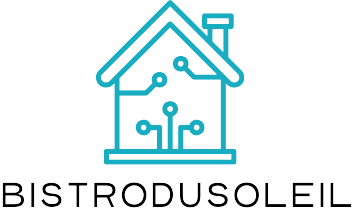Table of Contents
ToggleDeciding whether to buy or rent a home can feel like choosing between pizza and tacos—both are great, but one might just be a better fit for your lifestyle. In the world of real estate, the financial model behind buying versus renting isn’t just a numbers game; it’s a strategic play that can shape your future.
Overview of Buying vs Renting Financial Model
The financial model for buying versus renting a home involves multiple factors. Each option presents distinct costs and benefits influencing long-term financial stability. Buying a home typically involves higher initial costs, including down payments, closing fees, and ongoing expenses like property taxes and maintenance. In contrast, renting usually requires a security deposit and monthly payments, often inclusive of utilities, making it more manageable in the short term.
Home ownership builds equity over time, potentially increasing net worth. Renting offers flexibility, allowing individuals to relocate without the burden of selling a property. Financial experts suggest evaluating the local real estate market. In some areas, home prices may appreciate quickly, making buying an attractive investment. Accessibility to employment opportunities and amenities also plays a critical role in this decision.
When comparing monthly expenses, buyers often encounter fluctuating mortgage rates, influenced by market conditions. Renters may face increases in rent annually, depending on the lease agreement. Additionally, tax benefits such as mortgage interest deductions usually favor buyers. However, renters might enjoy greater tax simplicity with straightforward monthly payments.
Ultimately, the effective financial model depends on individual circumstances. Understanding personal goals, lifestyle preferences, and market dynamics facilitates an informed decision. Each pathway carries unique implications, emphasizing the necessity of thorough consideration in this crucial choice.
Advantages of Buying

Buying a home presents several advantages that can significantly enhance financial security and personal wealth.
Long-Term Investment Potential
Homeownership often serves as a long-term investment opportunity. Property values typically appreciate, allowing owners to build substantial equity. Over an extended period, this accumulation of equity can significantly boost net worth. For instance, homes historically appreciate at a rate of about 3 to 5 percent annually, depending on the location. Investors benefit from market improvements by capitalizing on increasing property values. Unlike renting, where monthly payments build no ownership, buying provides a pathway to financial growth and stability.
Tax Benefits
Homebuyers enjoy various tax benefits that can enhance overall financial health. Mortgage interest is often tax-deductible, significantly reducing taxable income for homeowners. Additionally, homeowners can deduct property taxes, which further decreases annual tax burdens. These benefits can amount to substantial savings each year, making ownership more financially advantageous than renting. For example, in 2023, the average homeowner could save thousands annually through these deductions. Ultimately, tax benefits can offset many of the costs associated with homeownership, providing a clear financial incentive to buy.
Advantages of Renting
Renting a home presents several benefits that appeal to a variety of individuals and families. The flexibility and lower upfront costs make renting an attractive option for many.
Flexibility and Mobility
Renting provides exceptional flexibility and mobility. Many renters can easily relocate based on job opportunities or personal preferences without the complications of selling a home. Short-term leases often allow renters to adapt quickly to changing circumstances. For instance, renters can explore different neighborhoods before committing to a permanent residence. This flexibility suits individuals who prioritize travel or career changes, as they can move with minimal notice. The freedom to choose a location based on current lifestyle needs enhances the overall renting experience.
Lower Upfront Costs
Lower upfront costs represent another significant advantage of renting. Typically, renters face a security deposit and the first month’s rent, which are considerably less than the down payment and closing costs associated with buying a home. These initial financial commitments remain manageable for those entering the housing market. Monthly rent often includes utilities, preserving cash flow for other expenses. With renting, unexpected costs like property maintenance are the landlord’s responsibility, allowing renters to budget effectively. The reduced financial burden makes renting an appealing option for many households.
Key Factors to Consider
Deciding between buying and renting requires careful consideration of several key factors. Evaluating one’s financial situation and future plans plays a pivotal role in this decision.
Financial Situation
Assessing current finances influences the buying versus renting choice. Monthly income, savings, and existing debts determine what individuals can afford. Higher down payments and closing costs associated with buying may exceed what some can allocate. Monthly rent often includes utilities, making budgeting simpler for many. An analysis of ongoing expenses like property taxes and maintenance for homeowners is crucial compared to the fixed rent payments of tenants. Additionally, evaluating mortgage rates provides insight into long-term financial commitments. Homeownership can build equity over time, while renting does not offer this benefit. Understanding personal financial health directly impacts this decision-making process.
Future Plans
Future plans significantly affect whether to buy or rent. Individuals anticipating relocation for job opportunities or life changes often lean toward renting. Renting provides flexibility to move with minimal hassle. On the other hand, those planning to settle in a location long-term may favor buying for stability and investment potential. An examination of job prospects and personal priorities helps clarify which option aligns with future aspirations. Growth in property value influences ownership advantages. Anticipating changes in lifestyle, such as starting a family or retiring, also informs this decision. All these future considerations contribute to a comprehensive approach to buying versus renting.
Comparing the Costs
Understanding the financial implications of buying versus renting is crucial. Each option presents distinct costs that can significantly affect a person’s financial health.
Initial Expenses
Buying a home often requires substantial upfront costs. A down payment typically ranges from 3% to 20% of the home’s price, followed by closing fees that may add another 2% to 5%. Security deposits for rentals are generally smaller, often equivalent to one month’s rent. Homebuyers also face additional expenses like inspection fees and appraisal costs, which renters typically avoid. With buying, it’s important to be prepared for these high initial investments, as they shape financial commitments and future capability.
Ongoing Costs
Monthly mortgage payments usually encompass principal, interest, property taxes, and insurance. These costs can fluctuate, especially with changing interest rates. Renters, on the other hand, often face a fixed monthly rental payment, generally including some utility costs. Property maintenance and repairs fall under the landlord’s responsibility, reducing renters’ financial burden. Homeowners must budget for maintenance and repairs, which can average 1% of the home’s value each year. Evaluating these ongoing costs helps clarify the long-term financial obligations associated with both options.
Deciding between buying and renting is a significant choice that requires careful consideration of personal circumstances and future goals. Each option presents unique financial implications that can shape one’s lifestyle and stability.
For those prioritizing investment and long-term stability, buying may offer compelling advantages. On the other hand, renters enjoy flexibility and lower upfront costs, making it easier to adapt to changing life situations.
Ultimately, it’s essential to weigh the benefits and drawbacks of each option against individual priorities and market conditions. Making an informed decision can lead to a more secure and fulfilling living situation.




